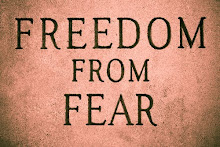
There are two types of fear, deluded or unhealthy and non-deluded or healthy. These can also be divided into fear of the inevitable and fear of the evitable. The key to dealing with fear is to check which type of fear we have, and to transform our unhealthy fears of what we can do nothing about into healthy, appropriate fears of what we can do something about. We can then use these as the motivation to develop refuge and to overcome what is really dangerous, and even eventually to overcome what at present seems inevitable, such as sickness, old age, and death.
Fear of Death
Or maybe we’re afraid of death. Again, though, as we are definitely going to die, that fear is not constructive and will lead to inappropriate responses such as denial or a sense of futility or meaninglessness in our life. However, although we have to die, we don’t have to die with an uncontrolled mind. It is therefore wise to transform our fear of dying into a fear of dying with an uncontrolled mind, the motivation that will ensure we prepare for a peaceful and controlled death.
Fear of Rejection
Or maybe we are afraid of rejection. Again, from where does this fear actually stem? Perhaps it is the fear of people disliking us. So what can we do about that? Change our mind and like them instead. That is in our control.
Fear of Being Trapped
Our fear of commitment, of being trapped, not able to back out, can also be transformed into a constructive fear when we recognize that what is really trapping us is our own mind. Real and healthy fear comes from recognizing that we are not committed to our escape from samsara, and serves as the motivation for seeking that commitment to escape
Think It

Khamis, 10 September 2009
Type Of FeaR...
Posted by MAsTer Of Poker at 1:19 PG 0 comments
Rabu, 9 September 2009
Wisdom Word From???
"We have nothing to fear but fear itself." -- Franklin Roosevelt 1933, First Inaugural Address
Posted by MAsTer Of Poker at 10:03 PG 0 comments
Dealing with Fear

Individuals: There are many ways of approaching fear in the context of conflict. However, since fear is such a personal issue, most approaches focus on the individual. There are various ways to deal with your own fear, including
becoming aware of it,
identifying the ways you express fear
recognizing the situations which trigger fear, and
using behavioral techniques to reduce fear and stress
Posted by MAsTer Of Poker at 9:42 PG 0 comments
Causes of Fear
For many people, the world is changing rapidly and their lives are being altered as a result. For some religious people, this change leads to the fear that young people will abandon the Church or Mosque, that the media will become more important and influential in the lives of their children, and that they are losing control of their own future. These threats to identity result in fear.[3]
Similarly, in many ethnic conflicts, a history of "humiliation, oppression, victimhood, feelings of inferiority, persecution of one's group, and other kinds of discrimination" lead to a fear of similar wrongdoing in the future.[4] These historical memories shape how groups and people see each other. As a result, historical violence between Israelis and Palestinians, Hutus and Tutsis, and Protestants and Catholics in Northern Ireland affects how these groups look at one another and often leads to fear of one another. Group fears often translate into individual fears, as group extinction is often associated with individual extinction.
These examples illustrate the important role that history plays in the development of fear. Memories of past injustices lead individuals to anticipate future oppression or violence with a sense of anxiety and dread.
Posted by MAsTer Of Poker at 9:36 PG 0 comments
What Is Fear Actually

Fear is "an unpleasant and often strong emotion caused by anticipation or awareness of danger."[1] Fear is completely natural and helps people to recognize and respond to dangerous situations and threats. However, healthy fear -- or fear which has a protective function -- can evolve into unhealthy or pathological fear, which can lead to exaggerated and violent behavior.
Dr. Ivan Kos lays out several different stages of fear. The first is real fear, or fear based on a real situation. If someone or something hurts you, you have a reason to fear it in the future. Second is realistic, or possible fear. This is fear based in reality that causes a person to avoid a threat in the first place (i.e. waiting to cross a busy road for safety reasons). Next, exaggerated or emotional fear deals with an individual "recalling past fears or occurrences and injecting them into a current situation."[2] This type of fear is particularly relevant to conflict. Emotional fear affects the way people handle conflictual situations.
Posted by MAsTer Of Poker at 9:29 PG 0 comments





